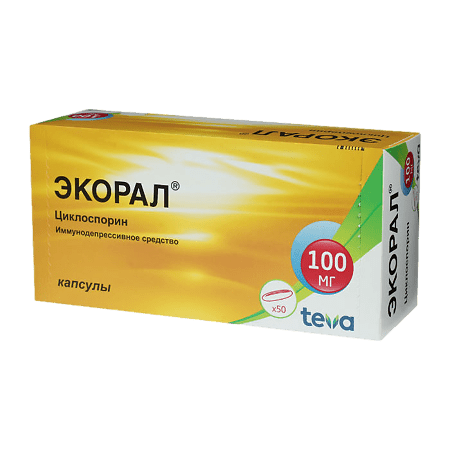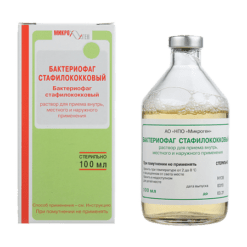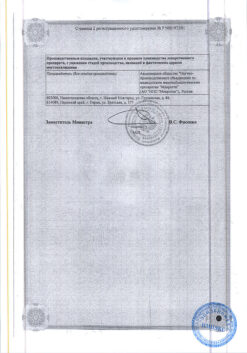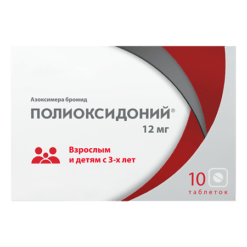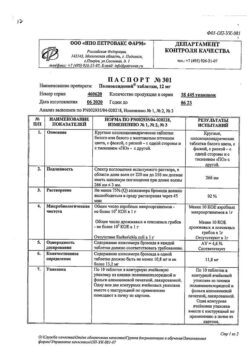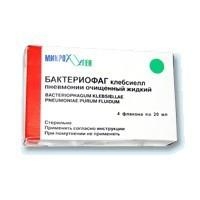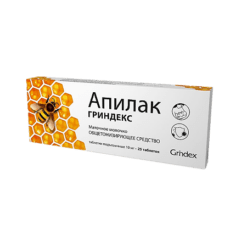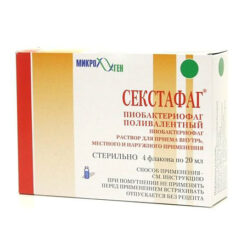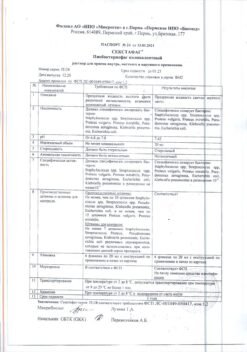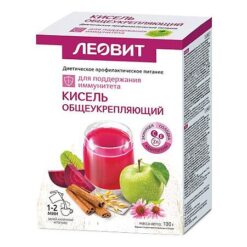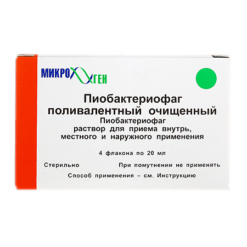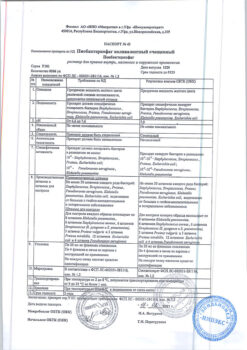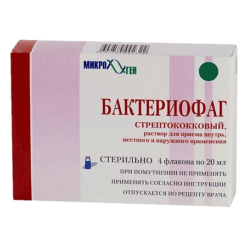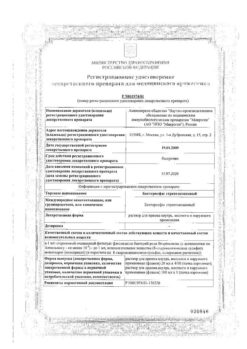No products in the cart.
Ecoral, capsules 100 mg 50 pcs
€1.00
Out of stock
(E-mail when Stock is available)
Description
Immunosuppressive drug. Ecoral (cyclosporine A) is a cyclic polypeptide consisting of 11 amino acids.
At the cellular level cyclosporine inhibits formation and release of lymphokines, including interleukin-2 (T-lymphocyte growth factor).
Cyclosporine blocks lymphocytes at rest in the G0 or G1 phase of the cell cycle and suppresses antigen-dependent release of lymphokines by activated T lymphocytes.
All the data suggest that cyclosporine acts on lymphocytes specifically and reversibly.
Cyclosporine does not inhibit hematopoiesis and does not affect phagocytic cell function.
Indications
Indications
Transplant versus host reaction (TGR) – prevention and treatment; autoimmune diseases.
Transplant-related indications: Sulidic organ transplantation (prevention of graft rejection after allogeneic kidney, liver, heart, combined heart-lung, lung, or pancreas transplantation; treatment of graft rejection in patients previously receiving other immunosuppressants; bone marrow transplantation (prevention of graft rejection after bone marrow transplantation, prevention and treatment of RTPX.
Non-transplant indications: Endogenous uveitis (active, vision-threatening middle and posterior uveitis of noninfectious etiology if conventional therapy is unsuccessful or leads to severe adverse reactions), Behcet’s uveitis with recurrent bouts of inflammation affecting the retina; Nephrotic syndrome (steroid-dependent and steroid-resistant forms in remission); rheumatoid arthritis (severe forms), psoriasis (severe forms when systemic therapy is required).
Active ingredient
Active ingredient
Composition
Composition
1 capsule contains:
The active ingredients:
cyclosporine 100 mg,
ethyl alcohol;
macrogoal glyceryl hydroxystearate;
polyglyceryl (3) oleate;
polyglyceryl (10) oleate;
D,L-alpha-tocopherol.
How to take, the dosage
How to take, the dosage
The daily dose of Ecoral should be divided into two doses. The following dosage ranges for oral administration of Ecoral should be regarded as recommendations only. Routine monitoring of cyclosporine blood concentrations should be performed. Based on the results obtained the dosage necessary for achieving the required level of cyclosporine concentration in different patients is determined.
Capsules of the preparation Ekoral should be washed down with water and swallowed whole.
Because of a possible interaction with P450-dependent enzyme system grapefruit or grapefruit juice should not be taken 1 hour before the administration of the drug dose.
Transplantation
During transplantation of solid organs the treatment by Ekoral should be started 12 hours before the operation in dose of 10-15 mg/kg divided into 2 doses. During 1-2 weeks after the surgery the drug is administered under the control of cyclosporine blood concentration until the maintenance dose of 2-6 mg/kg/day (in two doses) is achieved.
In cases when Ecoral is administered in combination with GCS and also within three- or four-component therapy the drug dose may be reduced even at the initial therapy stage (3-6 mg/kg/day in two intakes) or adjusted during the treatment taking into account blood cyclosporine concentration and safety parameters dynamics (urea concentration, serum creatinine and blood pressure).
In case of bone marrow transplantation the initial dose should be administered 24 hours before the operation. The daily dose of Ecoral should be 12.5 mg/kg divided into two doses. Supportive therapy is given for at least 3 months (6 months is preferable), after which the dose of cyclosporine is continuously reduced to zero for 1 year.
Non-transplant indications
In endogenous uveitis to achieve remission the drug is administered in an initial daily dose of 5 mg/kg orally in 2 doses until the disappearance of active inflammation signs and improvement of visual acuity. In cases with difficult treatment the dose may be increased up to 7 mg/kg/day for a short period.
If it is impossible to control the situation by Ekoral monotherapy then in order to achieve initial remission or to stop the inflammatory attack the complex therapy may be added with systemic GCS in a daily dose of 0.2-0.6 mg/kg of prednisolone (or other GCS preparation in an equivalent dose).
In the course of maintenance therapy the dose should be slowly reduced to achieve the lowest effective dose, which should not exceed 5 mg/kg/day during remission of the disease.
In nephrotic syndrome to achieve remission the recommended daily dose is 5 mg/kg for adults and 6 mg/kg for children (in 2 doses), provided that renal function is normal. In patients with impaired renal function the initial dose should not exceed 2.5 mg/kg/day.
If the use of Ekoral alone fails to achieve a satisfactory effect, especially in steroid-resistant patients, it is recommended to combine it with low-dose oral GCS. If after 3 months of treatment no improvement is achieved, Ecoral should be discontinued.
In rheumatoid arthritis during the first 6 weeks of treatment the recommended dose is 3 mg/kg/day in 2 intakes. In case of insufficient effect the daily dose can be gradually increased if tolerability allows, but should not exceed 5 mg/kg. To achieve the full efficacy it may be required 12 weeks treatment with Ekoral.
For maintenance therapy the dose should be adjusted individually depending on tolerability of the drug.
The preparation Ekoral may be administered in combination with low doses of glucocorticoids and/or NSAIDs. Ecoral can also be combined with a weekly course of low-dose methotrexate in patients with an unsatisfactory response to methotrexate monotherapy. The initial dose of Ecoral is 2.5 mg/kg/day (in two doses), and the dose may be increased to the level limited by tolerability.
In psoriasis due to variability of this disease treatment should be selected individually. For induction of remission, the recommended starting dose is 2.5 mg/kg/day in 2 doses. In the absence of improvement after 1 month of therapy, the daily dose may be gradually increased, but should not exceed 5 mg/kg. Treatment should be discontinued if satisfactory response from psoriasis manifestations has not been achieved after 6 weeks of treatment with the dose of 5 mg/kg/day, or if the effective dose meets the established safety parameters.
The initial dose of 5 mg/kg/day is justified in patients whose condition requires rapid improvement. If a satisfactory response is achieved, Ecoral can be discontinued and subsequent relapse treated with a repeat prescription of the drug at the previous effective dose. Some patients may require prolonged maintenance therapy.
For maintenance therapy, doses should be selected individually at the minimum effective level and should not exceed 5 mg/kg/day.
In atopic dermatitis, because of the variability of this condition, treatment should be selected individually. The recommended starting dose range is 2.5-5 mg/kg/day in 2 doses. If the initial dose of 2.5 mg/kg/day does not achieve a satisfactory response within 2 weeks, the daily dose can be rapidly increased to a maximum of 5 mg/kg. In very severe cases, rapid and adequate control of the disease can be achieved with an initial dose of 5 mg/kg/day. When a satisfactory response is achieved, the dose should be gradually reduced and, if possible, the drug should be withdrawn. If a relapse occurs, a second course may be given.
Although an 8-week course of treatment may be sufficient to clear the skin, therapy of up to 1 year has been shown to be effective and well tolerated, provided that all necessary parameters are always monitored.
Interaction
Interaction
Various drugs may increase or decrease concentrations of cyclosporine in blood plasma due to inhibition or induction of enzymes involved in cyclosporine metabolism, in particular cytochrome P450 isoenzymes.
When concomitant use with Ecoral, barbiturates, carbamazepine, phenytoin, nafcillin, sulfadimidine (by IV administration), rifampicin, Octreotide, probucol, orlistat; preparations containing Hypericum perforatum and troglitazone decrease plasma concentration of cyclosporine.
When co-administered some macrolide antibiotics (mainly erythromycin and clarithromycin), ketoconazole, fluconazole, itraconazole, diltiazem, nicardipine, verapamil, metoclopramide, oral contraceptives, danazol, methylprednisolone (high doses), allopurinol, amiodarone, cholic acid and its derivatives increase the concentration of cyclosporine in blood plasma.
It is necessary to avoid coadministration of erythromycin for oral administration with Ecoral because of the ability of the antibiotic to increase the concentration of cyclosporine in blood. If such combination is necessary (due to lack of alternative therapy) it is recommended to monitor closely the concentration of cyclosporine in blood, renal function and the presence of side effects of cyclosporine.
At concomitant use of agents with nephrotoxic effects with Ecoral, such as aminoglycosides (including gentamicin, tobramycin), amphotericin B, ciprofloxacin, vancomycin, trimethoprim (including in combination with sulfamethoxazole), NSAIDs (including diclofenac, diprofloxacin and sulfamethoxazole), ciproxycycline. diclofenac, naproxen, sulindac), melphalan mutual enhancement of toxic effects is possible (such combination is not recommended).
During treatment with cyclosporine vaccination may be less effective, vaccination with live vaccines is not recommended.
Combined use of nifedipine and cyclosporine may result in more severe gingival hyperplasia than with cyclosporine monotherapy.
It has been found that combined use of diclofenac and cyclosporine may significantly increase the bioavailability of diclofenac with possible development of reversible renal impairment. Increased bioavailability of diclofenac is most likely due to a decrease in its metabolism.
When used together, cyclosporine may decrease clearance of digoxine, colchicine, lovastatin, simvastatin and prednisolone, leading to increased toxic effects, in particular the appearance of muscle pain, weakness, myositis and, in rare cases, rhabdomyolysis.
Contraindications
Contraindications
Side effects
Side effects
Side effects of cyclosporine are mild and usually disappear with reduction of the drug dose.
After the start of oral administration of the drug in the first week, patients may have a burning sensation of the skin of the extremities.
During transplantation of solid organs the most common: increased hair growth, tremor, renal and hepatic dysfunction, gum hypertrophy, digestive system disorders (anorexia, nausea, vomiting, dose-dependent and reversible increase in serum bilirubin and liver enzyme activity); dose-dependent and reversible increase in creatinine and urea is also observed.
In heart transplantation the most frequent – arterial hypertension (in kidney transplantation it is noted not so often).
In bone marrow transplantation: GI disorders, tremor, hypertrichosis, facial edema is possible. Swelling and seizures have been reported in children.
Overdose
Overdose
To date there are no data on acute overdose of the drug Ekoral and there is limited experience regarding overdose with other cyclosporines.
Symptoms: reversible renal dysfunction.
Treatment: general supportive measures. The drug can be eliminated from the body only by non-specific measures, including gastric lavage, since cyclosporine is practically not eliminated by hemodialysis and hemoperfusion using activated charcoal.
Pregnancy use
Pregnancy use
Experience with the use of cyclosporine in pregnant women is limited.
The data obtained in post-transplant patients show that treatment with cyclosporine increases the risk of adverse effects on the course and outcome of pregnancy.
Breastfeeding should be stopped if Ecoral is to be prescribed.
Similarities
Similarities
Additional information
| Shelf life | 2 years |
|---|---|
| Conditions of storage | In a light-protected place, at a temperature not exceeding 25 °C |
| Manufacturer | Teva Czech Enterprises s.r.o., Czech Republic |
| Medication form | capsules |
| Brand | Teva Czech Enterprises s.r.o. |
Related products
Buy Ecoral, capsules 100 mg 50 pcs with delivery to USA, UK, Europe and over 120 other countries.

